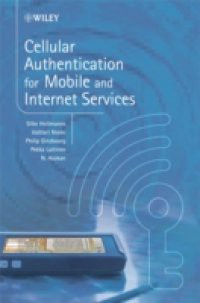An invaluable reference discussing the Generic Authentication Architecture (GAA), its infrastructure, usage and integration into existing networks Cellular Authentication for Mobile and Internet Services introduces the reader into the field of secure communication for mobile applications, including secure web browsing with a phone or PC, Single Sign-On (SSO), mobile broadcast content protection, secure location services, etc. The book discusses the Generic Authentication Architecture (GAA) of the mobile standardization body 3rd Generation Partnership Project (3GPP) and its American counterpart 3GPP2 in full detail and with all variants. It explains the usage of GAA by various standardization bodies and standardized applications, and also looks at a number of non-standardized ones, such as secure remote login to enterprise environment and card personalization. Cellular Authentication for Mobile and Internet Services: Describes the usage of the generic authentication architecture (GAA) by various standardization bodies and standardized applications, covering mobile broadcast / multicast service security, Single Sign-On, HTTPS (i.e. secure web browsing), secure data access, secure location services, etc Provides guidance on how to integrate the generic authentication into existing and future terminals, networks and applications Explains the functionality of the application security in general as well as on application developer level Describes various business scenarios and related security solutions, and covers secure application implementation and integration Brings together essential information (currently scattered across different standardization bodies) on standards in one comprehensive volume This excellent all-in-one reference will provide system and protocol designers, application developers, senior software project managers, telecommunication managers and ISP managers with a sound introduction into the field of secure communication for mobile applications. System integrators, advanced students, Ph.D. candidates, and professors of computer science or telecommunications will also find this text very useful.

